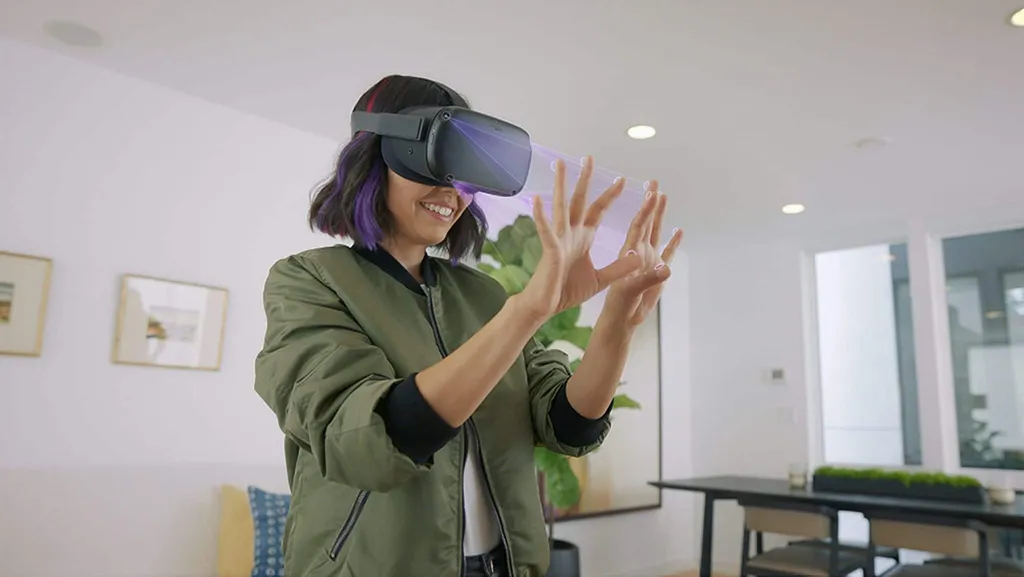A new era for VR is dawning with a new update for Facebook’s Oculus Quest all-in-one VR headset removing the need for controllers.
Instead, high-quality applications in a self-contained VR headset can be controlled with your bare hands, tracked by the same cameras used for virtual movement, making gestures in the open air.
The latest update to Quest’s system software (v17) begins to roll-out this week to headsets around the world and, with it, hand tracking will move from being an experiment activated in the menus to a general release feature. Facebook typically rolls out its Quest updates over several days to ensure stability of the release. Once the update fully rolls out, the first two games to support controller-free input — Waltz Of The Wizard and The Curious Tale of the Stolen Pets — will see updates that activate the feature.
We interviewed in our virtual studio developers from Fast Travel Games and Aldin Dynamics — the studios behind The Curious Tale and Waltz of the Wizard — about the hand-tracking updates. Check out those exclusive interviews here:
Though Quest isn’t the first AR or VR device to deploy hand tracking — and some experts believe the current Quest isn’t good enough to be sold without the controllers as a lower-priced option — developers also see the feature as valuable for slower-paced interactions and those that don’t require precise haptic feedback.
The Curious Tale of the Stolen Pets, Waltz of the Wizard and a tech demo called Elixir first shown at Facebook’s last VR developer’s conference seem to fit those parameters, and they will be the first fully interactive content to feature hand tracking through the Quest store. On May 28, Facebook will start accepting store submissions for other hand tracking apps. That same day, Facebook will launch a “cinematic narratives set” with the feature enabled in Colin Farrell-voiced Gloomy Eyes about a zombie kid and a mortal girl falling in love, and The Line which “portrays a world of miniatures where routine is paramount and everything is always the same—until it’s not,” according to Facebook.
A New Era For VR
After four years of struggles with painful setup processes and expensive prerequisites, consumer VR appears to be entering a new era driven by advances in content, improvements in hardware and software, and reductions in cost.
Valve helped draw 2 million people to PC VR recently with its much-anticipated return to the Half-Life universe in VR and the company just launched community modification tools for the game. Meanwhile, Sony’s PlayStation-based Dreams platform is set to receive a VR update soon that could unlock astounding levels of creativity through virtual reality.
Facebook’s Quest also appears to be on extremely strong ground after one year on the market driving an unmatched price of $400 for a complete standalone wireless system. Facebook’s CEO Mark Zuckerberg recently lamented in an earnings call that “I wish we could make more of them faster during this period,” referring to weeks-long periods of complete unavailability of the hardware worldwide when people are facing unprecedented pressure to stay indoors.
During this same time, some developers who have been selling consumer VR games for four years or more told UploadVR they’ve seen unmatched sales for their software in the last year via Quest. Facebook revealed today that since launch in May 2019 people spent more than $100 million on content in the Quest store. The company also confirmed popular titles Moss and Pistol Whip generated over $2 million in revenue on Quest alone. Of more than 170 apps available through the Quest store, more than 20 generated more than $1 million in revenue and more than 10 cleared the $2 million mark, according to the company.
Facebook first launched its hand-tracking software development kit for Quest in December. We’ll be updating our list of software carrying the feature on an ongoing basis in the coming weeks.




























